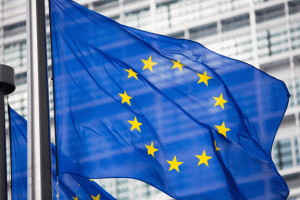Europe faces severe energy risks heading into coldest part of winter
It seems perverse to say that COVID could come to the rescue of the European energy market.
But the reality is the market is in a precarious state. Restrictions hindering businesses and industries’ power consumption could alleviate the energy crunch by reducing power use.
At the height of the 2020 lockdowns, power demand fell by as much is 20% in parts of Europe. Reports earlier this year of sky-high natural gas costs and low natural gas inventories have faded in recent weeks as other issues have hit the headlines.
However, the chronic lack of reserves remains a critical issue. It has been a factor in recent price rises, which have been compounded by related factors.
Better time your metal market purchases with the MetalMiner Insights platform. Request a demo.
Electricity price surge
Bloomberg reports prices soared to new records last week because of the impact of unexpected nuclear outages in France and worryingly low stockpiles of natural gas across the continent.
Meanwhile, on Friday natural gas prices plunged as Russia decided to supply the market at the 11th hour. Prices remain at dizzyingly high levels and are super sensitized to the slightest suggestion demand could rise due to a cold snap or further supply disruption.
Metal buyers will recall earlier this year metal prices rose as zinc smelters were forced to close due to power shortages.
Imagine how much more severe that could be in the middle of a prolonged mid-winter cold snap.
Authorities could be forced to make choices between rationing industry and keep the heat on for vulnerable domestic consumers.
Prices are already at record highs in France and Germany while the weather is relatively mild and demand isn’t really testing the limits of the system. Peak consumption usually comes in January or February when it’s coldest.
Bloomberg quotes analysts saying it wouldn’t even require a repeat of February 2018’s “Beast from the East” Siberian cold snap to trigger market meltdowns this year. Only a few degrees below normal will be enough.
French nuclear capacity cut could have ripple effect
The post goes on to worryingly report that a third of France’s nuclear capacity will be halted at the start of January. France usually exports power at peak times to its neighbors. The U.K. is particularly dependent on the subsea connectors. Its own reliance on variable renewables makes it vulnerable to shortfalls.
The fear is a shortfall in French supply will push prices up everywhere. Maintenance is also being disrupted by the pandemic, with quarantining widespread across Europe as the omicron variant takes hold. Three of Germany’s nuclear power plants will also shut down at the end of this year. As such, they won’t be available during the coldest part of winter. Germany has historically been Europe’s largest exporter of power to neighboring markets.
Buyers with European supply chains dependent on energy-intensive manufacturing operations may want to stress test suppliers’ resilience to power rationing and outages. Or, buyers should consider second-source options to hold in reserve this winter.
MetalMiner should-cost models: Give your organization levers to pull for more price transparency, from service centers, producers and part suppliers. Explore the models now.



Leave a Reply